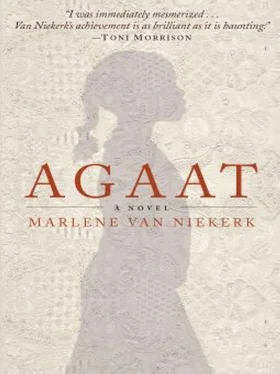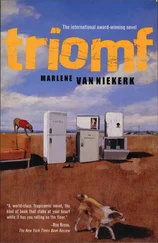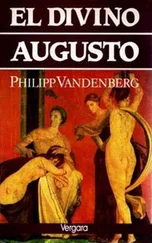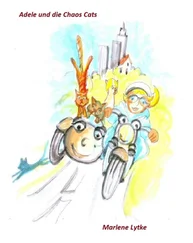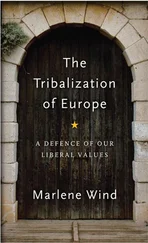Black fireplace and tin guitar. Wire-car world. White bone-whistle in exchange for a Dinky Toy. Was I inside once, twice? Gaat and I? With medicine, a little bucket of cinnamon porridge? The smell of soot and human bodies, the half-light. Shame, Gaat, but they don’t even have beds. Never mind, Boetie, let be, let’s go now, if you help one of them, you get stuck with a whole history before you know it.
A hanging bridge from Dawid’s front door into the black-wattle wilderness on the opposite bank. Rickety and full of holes. Forbidden ever to set foot on it.
Flight AC 52 to Cape Town now boarding. Voyager for the sake of the voyage. Nomad without a flock. Safer like that. A listener outside the tent, an ear, an eye, that’s all, that’s enough. But who can play the ethnographer at his mother’s deathbed?
When the inquisitive insisted, I sometimes played the draughtsman, roughly sketched on a second sheet of paper the house in which I grew up.
The homestead of Grootmoedersdrift, half H-shaped, the left leg shorter than the right. The stoep in front and on the east, the backyard open to the south, with storerooms, a servant’s room. Gaat’s room. In front two jerkin-head gables with big windows, Ma’s room on the right, Pa’s room left. The weathered doves in low relief under the overhang. Thatch. In front of the house to the north, the strip of level river-grazing up to the river’s edge. Planted pasture for cattle, a seam of indigenous trees next to the water, wild olive — blaze at the core — ( Olea africana ), true yellowwood ( Podocarpus latifolius ).
The song. The other answer for my questioners. Fantasy for a snowed-in farmer. For reed pipe, for Jew’s harp, with sniffles, wordless. Lord, am I up to this? All these years. Please fasten your seatbelts.
Rapidly rising range of hills on the other side of the river. Deep kloofs overgrown with protected bush, the old avenue of wild figs next to the two-track road. Poplar grove — whispering poplars. Yard with sheds, stables, milking-stables and feeding-stables. Ma’s garden that she used to live for. Used to live. To the left, the dam. At the back to the south, on the other side of the drift and the dirt road, the dryland, for wheat and sheep. Smallish round-backed hills, the upper stretches cultivated, in between steep patches of rough scrub. Hills with plots of grass and soft brushwood for the sheep to overnight, and bluegum plantings around their drinking troughs.
Swill-trough. God, the word. Pa’s word if he didn’t like somebody. Swill-trough, dung-hole, choke-weed. My pompous headstrong old man, drilled the shit out of me with running marathons on farm roads. Obstacle courses through dongas and drinking troughs. Spleen-stitch. Inguinal hernia. Up and down those mountains. It will make a man of you. What would he think of me now, a woollen cap with six summer shirts in a suitcase, butterfly in the heart? Open and shut, open and shut go the wings. Are there windscreen wipers for melancholy? No electronic equipment, please.
Translations for wolfneusgewels, rûens, droëland, drif : jerkin-head gables, ridges, dry farming-land, crossing. Prosaic. Devise something: wolfnosed gables, humpbacked hills, dryland, drift. Always the laughter at the office, good-natured, collegial, at my attempts: grove of whispering poplars. I romanticise, they say. Quite a fan of the homely hymn, that’s true. Homesick for the melody and so on. But that’s only the half of it. The rest is granular precision, unsingable intervals.
Charon with passenger list. Dr de Wet, are you comfortable? Do you need assistance with your coat?
Everybody wears a coat.
Do they see through me nowadays, the older students? Do they want to set me talking, get me going? Do they think I need bloodletting, like a feverish horse, moonstruck lovers, inconsolables? What would they know in any case of such old folk remedies, a bunch of contemporary musicologists, what as much as suspect? Of the compulsion to tell? Of the subcutaneous refrains?
The bottom of the bottle.
Now ready for take-off. Please check that your seatbelt is securely fastened, baggage safely stowed away, emergency procedures in the seat in front of you.
For the most part I keep to the climate when they question me.
Sometimes drop something by accident, an impression, of the Breede River, De Breede Rivier above Malgas.
Aeolian harp.
It’ll be the end of me yet, getting communication going. That’s how it’s been from the beginning with her.
This morning I had to stare and stare at the black box where it’s been lying for eleven months. Eventually I managed to catch her eye, and point my stare, there, where the shiny black varnish of the box showed, under the pile of reading matter. Under the growing pile of little blue notebooks, under the Sarie s, under the Fair Lady s, under the Farmer’s Weekly s on the dressing table in front of the stoep door, there!
At first she thought I wanted her to read to me. She smirked. It wasn’t reading-aloud time. It wasn’t even breakfast time yet, before eight, right after she’d wound the grandfather clock in the front parlour, right after I’d heard the door of the sideboard go tchick and she came in here with her little book.
She’d already marked the bit she wants to read tonight, the corner of the page emphatically dog-eared.
The blue booklets on the pile all seem thicker than they are because of all the dog-ears. Sometimes she says I have to guess which bit it’s going to be. Then she says she could never have guessed everything she was going to read there. But sometimes she opens the book on her lap and recites what’s written there, long stretches. As if they were rhymes, or a lesson. Then she asks me if it was good like that, whether I can remember when it happened.
As if I can reply.
She always checks to see whether she’s left anything out, marks it with her red pen.
How long ago would she have started learning it by heart? Or does she invent bits as she goes along?
As if I can remember everything exactly as I wrote it there. Thirty, thirty-six years ago!
She tore out my inscription in the front of the first booklet and fixed it on the reading stand right up against my nose. As directed by the Almighty God , it says there, next to the other text which she wants me not to lose sight of. The table of my sickness. The table of symptoms, medicines and therapies.
She never removes them from there, the two sheets.
As if the one should be a constant reminder to me of what I’m suffering from.
As if the other is proof that everything she reads to me from the little books was written by myself.
As if the two documents belong to the same order of truth.
I’m sick of staring at the two tattered pieces of paper every time she removes my book or magazine from the reading stand and packs it away. Sick of having to listen too, because she spells it out aloud for me, presses her finger on it, on the table, on the dedication.
Symptom: constipation.
Medicine: Pink Lady.
Therapy: Exercise, increased intake of fluids.
As if I can do Canadian Air Force exercises.
As if, in these barren regions, there is anything that can quench my thirst.
As if medicine can help. You take medicine to get better.
The writing on the torn-out page doesn’t even look like my handwriting to me.
As directed by the Almighty God, Ruler of our joint Destinies and Keeper of the Book of Life. .
I was young. And it was not the first entry. The real beginning of it all I never wrote down.
Never felt up to revisiting those depths.
Not after I’d found out what I’d brought upon myself.
Читать дальше
